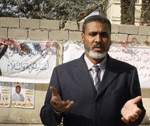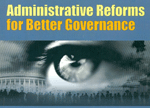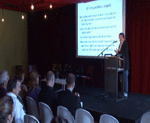Social Watch news
Published on Wed, 2013-05-01 13:04
Representatives of civil society organizations; the signatories of this appeal, condemn the assassination in Basrah on 26 April 2013 of the activist, Jalal Dhiyab; the President of the Supporters Humanitarian Liberty Association, one of the outstanding defenders of human rights in Iraq, who has devoted much of his life to defend black rights for full citizenship, and his legitimate claim to address the culture of discrimination and the rights of black citizens in political representation and participation in public life, draw a road map for the achievement of equality and the promotion of political representation and participation in public life, draw a road map for the achievement of equality and the promotion of citizenship rights for all components in the process of building a democratic system in Iraq. |
Published on Tue, 2013-04-23 14:01
The UN has launched an extensive worldwide discussion on the new development agenda that is to succeed the Millennium Development Goals in 2015. Jens Martens, long-time observer of international development and environmental policy, cautions in an interview against consultation overkill and calls on NGOs to develop alternatives that go beyond what is currently politically feasible. |
Published on Tue, 2013-04-23 01:41
In the aftermath of the peoples’ revolutions in the Arab region, an expansion of IMF loan agreements was witnessed in the Arab region; including new loans with Jordan, Morocco, and Yemen, and ongoing negotiations for loans with Tunisia and Egypt. People in the Arab countries face multiple social and economic challenges, including high debt and deficits, a youth unemployment bulge, and deepening inequalities since before the global crisis and the peoples’ uprisings. Today, peoples’ voices in the region are cautioning against the implications of the IMF loans and their austerity conditions. Peoples’ aspirations for a genuinely democratic transition towards social and economic justice are in jeopardy if fiscal adjustment constrains the government’s ability to carry out public investment for the preservation of vital social sectors and essential services, and to create employment, wages and productive sector growth in the real economy. |
Published on Mon, 2013-04-22 14:23
Bangalore - After independence, we got bureaucracy not democracy, said Bhaskar Rao Gorantla, Research Director of National Social Watch (India). He was addressing a gathering of civil society representatives at a consultation programme organized by the Karnataka Social Watch on administrative reforms. Listing various structural problems in the administration, he said that although the central and state level administrations have undergone a positive change since independence, the district/local level administrative bodies have not undergone any significant changes. |
Published on Fri, 2013-04-19 00:00
Social Watch Coordinator addresses inequalities in his intervention at the "Think Global day" in Brussels on April 19th. 2013. See the video here. |
Published on Thu, 2013-04-11 11:20
As a whirlpool, the crisis that has been lasting for the past 5 years has hit Italy hard in 2012. The deterioration of the living conditions of a large part of the Italian population concerned especially the "working poor": in Italy, there are three million, about 15% of the total employed. Eight million Italians live with less than one thousand euro per month. The crisis has seriously damaged the middle class. |
Published on Thu, 2013-04-11 11:07
Armenia adopted the “UN Millennium Declaration” in 2000. It was obvious that the goals cannot be comprehensive, and each country should determine its current problems, especially if the solution is defined by the Constitution and other laws and international obligations. As a result of MDG local adaptation the following goals: “Achieve universal primary education”, “Contribute to gender equality and empowerment of women” were not recognized as the first order priority since the Constitution obliges the state to ensure that all citizens work, have a decent standard of living, access to all levels of education, professional training, health care and healthy living conditions, etc. However despite these two goals were not emphasized as priority ones some achievements were observed with respect to these spheres. The programs initiated for eradicating poverty and achieving equality were sentenced to fail, since they are not focused on human being, that is the program results are not tied to improvement of real life of people. |
| Published on Mon, 2013-04-08 00:00 |
Published on Thu, 2013-04-04 11:52
According to government data, Malaysia is said to be on the way towards achieving all eight MDGs; commitment is reflected in the Tenth Malaysia Plan (2011-2015). But Malaysia’s development trajectory has hitherto primarily been driven by a combination of low worker wages amidst high revenues for petroleum, palm oil and rubber commodities and foreign direct investment in the manufacturing sector. In other words, very little of the profits in the form of oil royalties, for example, have gone towards developing the states that produce a large bulk of the oil, such as Kelantan, Terengganu, Sabah and Sarawak, but which happen also to be the poorest states in Malaysia. And while the government announced its motto to be “People First, Performance Now” and its goals to reduce crime; fight corruption; improve student outcomes; raise living standards of low-income households; improving rural basic infrastructure; and improve urban public transport, it appears that while lip-service has been paid, little pertaining to the structural and systemic inequities, inequalities and injustices of the political or social economy have been dealt with or addressed with any substance. Malaysia’s inadequate financial, technological and market infrastructure and human capital have been pinpointed as reasons why it cannot compete in economically higher-value-added products and services. |
Published on Thu, 2013-04-04 10:52
Despite that the poverty level in Azerbaijan decreased by 1.5 % and amounted to 7.6 % in 2011, share of poorest quintile in national income also diminished. Revenues from the oil sector could be allowed financing projects required to reach those aims by 2015. But interestingly that even in Azerbaijan receiving large revenues from oil, there wasn’t rapid increase in public funding for the social sector. The Government rather prefers to accumulate the surplus in the special oil fund and plan to use it to push forward big infrastructure projects. |
SUSCRIBE TO OUR NEWSLETTER












